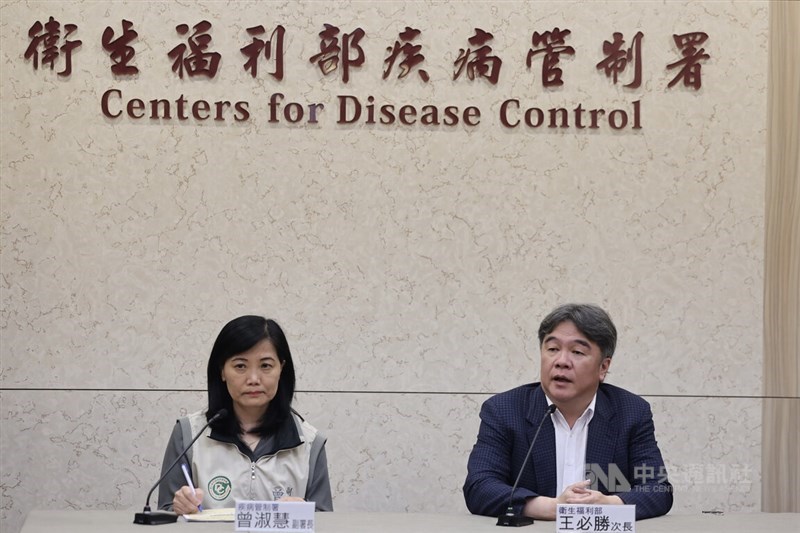
Taipei, April 3 (CNA) DNA tests will be used to identify the existence of the bacterium that is believed to have produced a lethal toxin linked to the recent food poisoning outbreak in Taipei, Deputy Health Minister Victor Wang (王必勝) said Wednesday.
The Taiwan Food and Drug Administration (TFDA) said Wednesday morning that eight environmental samples obtained from the Xinyi branch of the Malaysian restaurant chain Polam Kopitiam on March 28 had all tested negative for Burkholderia gladioli, a bacterium suspected to have produced the toxin Bongkrekic acid.
Among the 32 people who fell ill after eating at the Xinyi branch, 22 tested positive for Bongkrekic acid, while the other ten are still undergoing tests, according to the Ministry of Health and Welfare (MOHW).
An expert panel was convened by the MOHW later Wednesday, and it was attended by medical and toxicology experts, the heads of the Department of Health in Taipei and New Taipei, and representatives from the Centers for Disease Control (CDC) and TFDA, Wang said.
More samples will be tested for Burkholderia gladioli, Wang said, reiterating that it is a relatively weak bacterium that can be easily killed by cleaning procedures, therefore the chances for it to be discovered through bacteria test is low.
He stated that during the panel meeting, some experts proposed DNA testing of fragments as an indirect way to determine the presence of Burkholderia gladioli.
The authority will adopt this testing method, Wang said, without specifying when or where the tests will be done.
Q&A/Four things to know about Bongkrekic acid
March 30: 2 conditions required for Bongkrekic acid to become lethal: Doctor
A sample of primer -- a short single-stranded nucleic acid that can serve as the standard sample in DNA tests -- has been provided by the Food Industry Research and Development Institute to the TFDA, and DNA test will be conducted accordingly, Wang added.
Regarding the four patients who are still in critical condition in intensive care units, Wang said that it is suggested to utilize plasma exchange -- a treatment that involves the removal, treatment and return of a patient's blood plasma -- to help them eliminate Bongkrekic acid from their bodies.
"Perhaps it is currently the most effective method to eliminate the toxin because an antidote [for Bongkrekic acid] is still not available," Wang said.
As of 5:30 p.m. Wednesday, 32 people who ate at Polam Kopitiam's Xinyi restaurant between March 19-24 have reported falling ill, according to the MOHW.
Of the 32, two had died, six were still in hospital -- four of them in critical condition in intensive care units -- and 24 were recuperating at home, the ministry's data showed.
Related News
April 2: Bongkrekic acid found in restaurant hit by food poisoning outbreak
April 1: No toxin found in samples from restaurant in food poisoning incident
March 29: Owner of restaurant chain at center of food poisoning outbreak apologizes
March 29: Bongkrekic acid found in 8 food poisoning cases; none in food samples
March 27: Suspected food poisoning outbreak in Taipei restaurant leaves one dead
Focus Taiwan's coverage of food poinsoning incident in Taipei
- Society
Thousands of Muslims gather across Taiwan for Eid al-Fitr prayers
04/10/2024 05:13 PM - Politics
New Cabinet to respond to domestic, global challenges: Lai
04/10/2024 04:55 PM - Society
Electronic pet ID card launched by agriculture ministry
04/10/2024 04:51 PM - Business
U.S. dollar closes lower on Taipei forex market
04/10/2024 04:11 PM - Business
TSMC reports highest sales for Q1
04/10/2024 03:52 PM